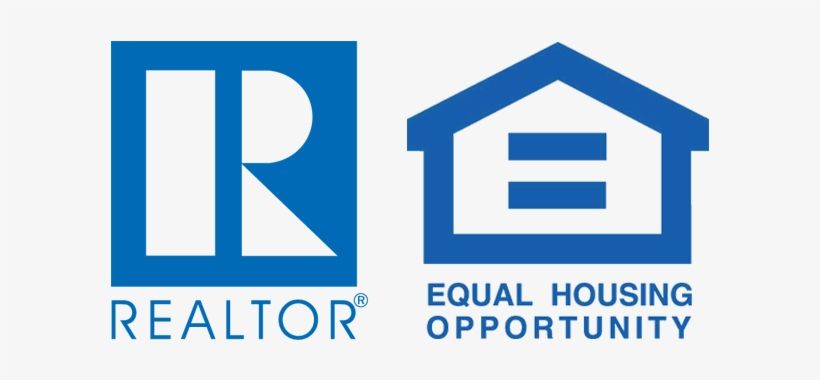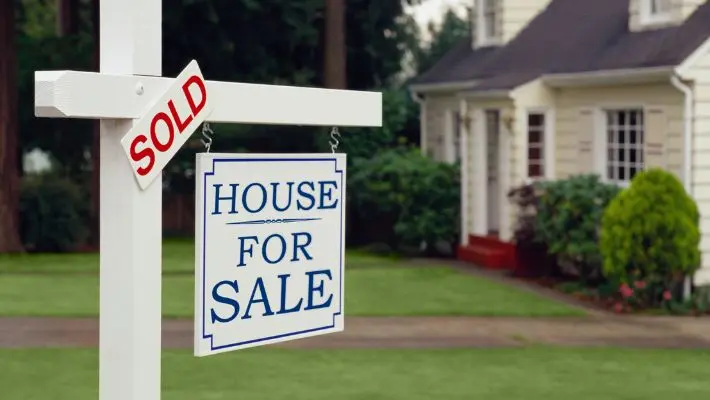
Sellers: the Best Way to Find the right Listing Agent
Get the highest possible price when you sell your home - find the best listing agent with our guide. The difference between a good real estate agent and a bad one can be tens of thousands of dollars.
While selling your home can be an exciting time since it signifies a new chapter in your life, it is more likely to be an emotional and overwhelming drain on your time. Not only are you and your family leaving a place where you’ve shared special memories and have a strong emotional attachment to, selling a house requires a lot of work to prepare for a sale.
It’s important to find a skilled and experienced real estate agent who will guide you through this process, both from a workflow perspective and an emotional one. Having the right listing agent could be the single largest difference between a great outcome and a poor one. This guide will explain the differences between the various types of real estate agents you’ve probably heard about: REALTORS®, buyers agents, seller’s agents, and listing agents. You’ll also learn about the best ways to find the right agent to sell your home.

REALTORS® vs. Real Estate Agents
The term REALTOR® and real estate agent is quite often used interchangeably. Real estate agents are individuals who have passed a state licensing exam. Each state has different requirements for obtaining a real estate license, but preparation for passing any real estate exam involves hours of study. For example, California’s real estate exam requires 135 hours of coursework before an individual is allowed to take the exam. People who pass this exam have earned their real estate license.
A REALTOR® is a licensed real estate agent who is also required to join the National Association of REALTORS® (NAR). The main requirement for joining NAR is that the individual must sign its code of ethics which requires that its members follow strict conduct rules towards clients, customers, and other REALTORS®. The NAR code of ethics holds its REALTORS® to a higher standard of professionalism. This is not to say that regular real estate agents do not adhere to high standards, it’s just that the NAR explicitly requires its members to agree to these standards.
Buyer’s Agent, Seller’s Agent, and Listing Agents
Once you understand the difference between a REALTOR® and a real estate agent, you will hear the terms, buyer’s agent, seller’s agent, and listing agent. In the United States, within residential real estate, there are typically two types of agents involved in one real estate transaction. There is an agent who represents the seller (also known as a listing agent or seller’s agent) and an agent who represents the buyer - obviously called the buyer’s agent. Most real estate agents will represent both sellers and buyers though not for the same transaction. Many experienced agents will specialize in sellers in particular. Real estate agents who do represent the seller and buyer for the same transaction are called dual agency agents. The best type of agent for you depends on whether you are buying or selling and the agent’s local experience,
Buyer’s Agent
A buyer’s agent represents the home buyer in a real estate transaction. On average, a home buyer will look at 10 homes over 10 weeks before finding the right home. A buyer’s agent only represents the buyer and is not tied to any one particular property. Over the course of this 10 week process (on average), your buyer’s agent will provide you with guidance on home value, home condition, location, and overall market conditions. In competitive markets, managing the up & down emotions associated with the offer & rejection process is best handled with an agent who has been through this process many times. A buyer’s agent is your fiduciary and their one goal is to find you, the buyer, the exact house that you want.
Seller’s Agent & Listing Agents
A seller’s agent is the same thing as a listing agent - real estate agents (often also REALTORS®) whose only goal is to sell your home. The term ‘listing agent’ stems from the fact that the agent will take your home as a ‘listing’ and will list the home for sale on the local MLS (Multiple Listing Service). The local MLS is a database of homes for sale that almost all licensed real estate agents use to publish and view available homes for sale. However, listing your home in the MLS database is just one of the many (and probably easiest tasks) that a listing agent will do to sell your home. Preparing your home for sale (through recommended repairs and/or upgrades), pricing your home appropriately for the current market, and navigating the mountain of paperwork are some of the key tasks that a listing agent does that may not be outwardly apparent. Executing a marketing plan to both the general public and the agent’s own sphere of buyer clients is the final step that a listing agent will do to help you get the best possible price for the sale of your home.
What does a Listing Agent do?
Listing agents help you navigate the entire process of selling your home. Because their goal is to get you the best price possible, they will ensure that it’s in excellent condition for marketing and showings in order to drive as many buyers through as possible.
- Updates: The agent will start by inspecting your house for any repairs or updates that should be done before selling. These could be simple updates, such as a fresh coat of paint or a bit of landscaping. They will also explain how to stage your home for potential buyers.
- Pricing: A listing agent has their pulse on the local market and knows what other houses are selling for before that information is made public. Oftentimes, a listing agent will wait until the very last minute to set the sale price of the home since the market is constantly changing.

- Marketing: High-quality photos of your home are essential to good marketing. The agent will take flattering photos of your home and property and then advertise them in various promotions to attract prospective buyers.
- Negotiations: Potential buyers will make offers or requests that the listing agent will note in detail. Satisfying these requests will help you get the best price for your home.
- Closing: Closing on a home sale requires inspections and lots of paperwork. Your listing agent will organize and walk you through every step.
Where To Find a Listing Agent
There are a variety of ways to find a listing agent, here are the most common:
- By referral - the best recommendations always seem to come from a trusted friend or family member who has personally used the agent before
- Yard signs - successful real estate agents list many homes for sale - these listings have ‘for sale’ signs with their name and picture plastered across town - these signs subtly associate the agent’s name with local real estate
- Open houses - while open houses are less popular right now due to the pandemic, they are good places to talk with real estate agents informally. This gives you an opportunity to gain insight into the agent’s style of work without feeling pressured to hire them. Just be aware that agents who host open houses are not necessarily the same agent who listed the house. Often, open houses are opportunities for newer agents to meet buyer clients.

- Online - in this day and age, the Internet has several resources to find a local agent - if anything, there are too many options available online. Be careful which online sources you trust. Online tools are good for finding and researching agents in your area. When you find one that seems promising, read their reviews and check out their social media profiles. You’ll find that many clients post more honest information about their agent experience on social media than on a company’s website.
A rule of thumb to follow is that a good listing agent should have listed one or more homes for sale in your town. Since each local market is completely different from another, having direct, local experience in your town is a huge advantage. When determining which real estate agents to talk to, keep in mind that you are building a new relationship with someone you’ll most likely be talking to daily over the next 3 months. Make sure you find someone that you are able to work with and who truly understands what you need.
If you’re lucky enough to find a REALTOR® through a trusted friend, here are some preemptive questions you should ask your friend:
- How long did it take to sell your home?
- What was the process of showing your home?
- How did they figure out the price for your home?
- What were they like when communicating with you and potential buyers?
- Were you happy with the price you received for your home?
Hopefully your friend will answer your questions truthfully. Referring real estate agents can be tricky sometimes since local real estate agents are closely linked (both personally and professionally) with the local community.
Interviewing the Right Listing Agent
You have done your research, asked your friends and family, and compiled a list of promising REALTORS®. You can learn a lot by asking others and doing research online, but nothing beats having a face-to-face conversation. The interview process, also known as the listing presentation, will help you know if this person is the right listing agent for you.
Some key information you’ll want to learn about the agent include their overall selling process, communication process, and specific challenges they see with your house. As mentioned earlier, you’ll be working closely with this person for the next few months - it's good to know both who they are as a real estate agent and as a person; this will help you determine whether you will work well together.
Here are some key questions to ask a selling agent during the listing presentation:
Is Selling Real Estate Your Full-Time Job?
Asking a REALTOR® if real estate is their only job may seem odd, but it’s an important question. Selling real estate takes a lot of time and commitment. There will be constant phone calls, emails, messages, meetings, and showings to attend to when selling a home.
If an agent is only doing this work part-time, they most likely will not be available to handle the many time-sensitive matters that come with selling a home. If offers come in or a potential buyer has a short window to see the home, your agent should be available and fully committed to doing the work needed to sell your home.
What Is Your Experience?
Experience is earned in several different ways, so judging someone solely on the length of time they have been a REALTOR® does not necessarily tell you if they are good. There are several more specific questions to ask a real estate agent to find out their past work results.
- How many homes did you sell in the last year? This number will help you gauge how successful they are as a REALTOR®. A low number means that they may not have the experience or abilities you are looking for.
- How long was the average length of time from listing a home to selling it? When you put your house on the market, it’s because you’re ready to sell. You want an agent that has a good track record of selling homes quickly. The amount of time it takes to sell will depend on the current market and location, but an average range from the real estate agent will help you make the right decision.
- What was the average difference between your listing price and selling price? This question can give a lot of insight into how the listing agent works. Naturally, you want to get the best price for your home. However, some REALTORS® will suggest a high listing price just to get you to sign a contract. They know that an inflated price will get you excited even if your home won’t actually sell for that amount. Their goal is to lock you into a contract now and then to have you lower your price in a few weeks. Ask them what their experience has been in the last year to better understand how accurately they price homes.
- Can you provide your most recent testimonials and references? Any references given will almost certainly be their most satisfied customers, so a way to get an accurate review of their work is by asking specifically for contact information for their recent clients. This allows you to inquire about how the client's experience was. Speaking directly with someone who has hired the REALTOR® recently will help you better understand how they are to work with.
How Do You Market a Home?
Good marketing and advertising is the best way to get your home seen by potential buyers. A sign in front of your home is not enough anymore. Good real estate agents always have a pool of buyers - it never hurts to ask if they have a buyer in mind for your house. There are several ways to market homes, so ask about the REALTOR®’s strategy and decide if it will work for you.
How Do You Use the Internet To Market?
The internet is a powerful tool. Confirming that your real estate agent knows how to use it is important. There are many ways to maximize your home’s visibility on the internet, so be sure to ask about each one of them.
- Social Media: Facebook, Twitter, and Instagram can reach a large audience. Ask if the REALTOR® uses these sites to generate traffic for potential buyers.

- Real Estate Website: Find out if the REALTOR® has their own real estate website. Ask if it comes up in local real estate searches online. Many listing agents will also create a dedicated website just for your house.
- Real Estate Blog: Another way to market your home is a real estate blog. REALTORS® can make a full listing all about your home to advertise to prospective buyers.
- High-Quality Photographs, Video, 3D tours, and drones: Advertising has to be visually appealing to make people interested in it. Find out the type of camera they plan to use, and if they use drone footage or other video production tools.
How Do You Keep in Touch?
Communication during the home-selling process is critical for a successful sale. The listing agent will be the main person to filter through conversations with buyers’ agents, the inspectors, and anyone else you need to speak to. Since they will have the majority of those conversations, you need to find out how you will be involved in the process.
- How often will they be updating you? You want to know what is happening with your home’s sale, so regular contact from the agent is vital.
- Will you provide an update after each showing? Many potential buyers will have comments or feedback about the home while looking at it. This information could be the key to selling your home, so knowing exactly what the buyers are saying will help you to make any needed adjustments to your home.
- What is the best way to contact you? You are hiring them for a job, so they should be available to you as much as possible. Having a cell phone number or email that they quickly respond to will aid in regular communication.
How Much Do You Get Paid?
It’s important that you know how much a real estate agent gets paid. Commissions vary from agent to agent, so it’s necessary to ask how they figure their commission into the sale of your home. Ask them to break down into different price scenarios how much they would make. This way, you know beforehand how much money will be paid directly to them out of the sale price.
Other Questions To Ask
The real estate agent you hire will be working to make you a good amount of money. With this in mind, you want to get as much information before hiring as possible.
A few other questions to consider when interviewing a REALTOR® include:
- How do you come up with the list price?
- What improvements should be made to a home before selling?
- Will you be at all the home inspections?
- What are the penalties for canceling a contract?
Summary: Find a Good Listing Agent
Finding and interviewing a REALTOR® is an important part of the home-selling process. You want them to be by your side, from setting up your home for pictures to the moment you hand over the keys. Having a good working relationship with this person will make it much easier.
Find at least three potential listing agents. Ask friends, family, and neighbors for suggestions. Search the internet for local agents with good reviews. This person will guide you through the next big step in your life, so take the time to sit down and ask them questions. Doing so will better ensure that you have a positive experience selling your home.






